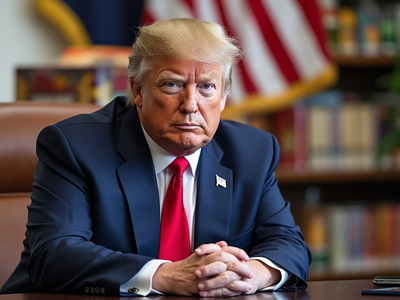
Abu Dhabi Launches Plan for Massive Coral Rehabilitation Initiative
Ambitious plan aims to plant over 4 million coral colonies by 2030, expanding on prior successful efforts.
Abu Dhabi has announced a substantial initiative to plant over 4 million coral colonies by the year 2030, marking what is projected to become the world's largest coral rehabilitation project.
The ambitious plan, which targets an area exceeding 900 hectares, is being spearheaded by Sheikh Hamdan bin Zayed, the Ruler's Representative in Al Dhafra Region and Chairman of the Environment Agency of Abu Dhabi (EAD).
This initiative builds upon the successful restoration of one million coral colonies since 2021, a project that reportedly achieved a 95 percent survival rate.
Dr Shaikha Salem Al Dhaheri, Secretary General of EAD, emphasized the significance of this expansion in demonstrating the commitment to marine conservation and promoting resilient ecosystems, stating, "After successfully planting one million coral colonies, we are expanding the programme."
The initial coral restoration efforts have shown promising results, with fish populations and species diversity increasing by over 50 percent in the rehabilitated areas.
Notably, these corals have displayed resilience, continuing to grow even during the intense summer heat typical of the Arabian Gulf, indicating their capacity to withstand extreme environmental conditions.
Dr Shaikha noted, "Despite the Arabian Gulf's harsh environmental conditions, coral reefs can adapt and provide habitats for a variety of marine species in the region.
They are highly flexible, enabling them to adapt and withstand the hottest seas, distinguishing them from other types of coral reefs around the world."
In conjunction with this expansive coral plantation plan, EAD recently launched the "Abu Dhabi Coral Garden" initiative, set to be implemented over the next five years.
This project proposes the creation of artificial coral gardens through the installation of 40,000 eco-friendly artificial corals in various designs and sizes.
The initiative aims to enhance marine biodiversity across 1,200 square kilometers of both coastal and deep-sea environments.
The design of these artificial reefs is strategically developed to attract marine life at rates estimated to be three times higher than those of natural reefs, with projections that they could yield over five million kilograms of fish annually.
Additionally, various emirates within the UAE are actively participating in marine conservation efforts.
For example, Sharjah has initiated a pilot project in Khorfakkan that employs artificial reef caves to bolster fish habitats.
Meanwhile, Dubai has commenced the first phase of its Dubai Reef project, which plans to deploy 20,000 reef modules over a span of 600 square kilometers within the next three years.
The Ministry of Climate Change and Environment is overseeing coral restoration efforts across the UAE, which includes a research initiative dedicated to cultivating 24 resilient coral species and a comprehensive national reef mapping project that identifies 210 sites supporting more than 55 species of hard corals.
Previous successful efforts have also included the establishment of coral gardens in Ras Al Khaimah, Umm al Qaiwain, and Ajman.
Furthermore, a collaboration with Fujairah Adventures aims to plant 1.5 million coral reef colonies along the eastern coast, reinforcing the UAE's commitment to preserving and enhancing its marine ecosystems.
The ambitious plan, which targets an area exceeding 900 hectares, is being spearheaded by Sheikh Hamdan bin Zayed, the Ruler's Representative in Al Dhafra Region and Chairman of the Environment Agency of Abu Dhabi (EAD).
This initiative builds upon the successful restoration of one million coral colonies since 2021, a project that reportedly achieved a 95 percent survival rate.
Dr Shaikha Salem Al Dhaheri, Secretary General of EAD, emphasized the significance of this expansion in demonstrating the commitment to marine conservation and promoting resilient ecosystems, stating, "After successfully planting one million coral colonies, we are expanding the programme."
The initial coral restoration efforts have shown promising results, with fish populations and species diversity increasing by over 50 percent in the rehabilitated areas.
Notably, these corals have displayed resilience, continuing to grow even during the intense summer heat typical of the Arabian Gulf, indicating their capacity to withstand extreme environmental conditions.
Dr Shaikha noted, "Despite the Arabian Gulf's harsh environmental conditions, coral reefs can adapt and provide habitats for a variety of marine species in the region.
They are highly flexible, enabling them to adapt and withstand the hottest seas, distinguishing them from other types of coral reefs around the world."
In conjunction with this expansive coral plantation plan, EAD recently launched the "Abu Dhabi Coral Garden" initiative, set to be implemented over the next five years.
This project proposes the creation of artificial coral gardens through the installation of 40,000 eco-friendly artificial corals in various designs and sizes.
The initiative aims to enhance marine biodiversity across 1,200 square kilometers of both coastal and deep-sea environments.
The design of these artificial reefs is strategically developed to attract marine life at rates estimated to be three times higher than those of natural reefs, with projections that they could yield over five million kilograms of fish annually.
Additionally, various emirates within the UAE are actively participating in marine conservation efforts.
For example, Sharjah has initiated a pilot project in Khorfakkan that employs artificial reef caves to bolster fish habitats.
Meanwhile, Dubai has commenced the first phase of its Dubai Reef project, which plans to deploy 20,000 reef modules over a span of 600 square kilometers within the next three years.
The Ministry of Climate Change and Environment is overseeing coral restoration efforts across the UAE, which includes a research initiative dedicated to cultivating 24 resilient coral species and a comprehensive national reef mapping project that identifies 210 sites supporting more than 55 species of hard corals.
Previous successful efforts have also included the establishment of coral gardens in Ras Al Khaimah, Umm al Qaiwain, and Ajman.
Furthermore, a collaboration with Fujairah Adventures aims to plant 1.5 million coral reef colonies along the eastern coast, reinforcing the UAE's commitment to preserving and enhancing its marine ecosystems.










